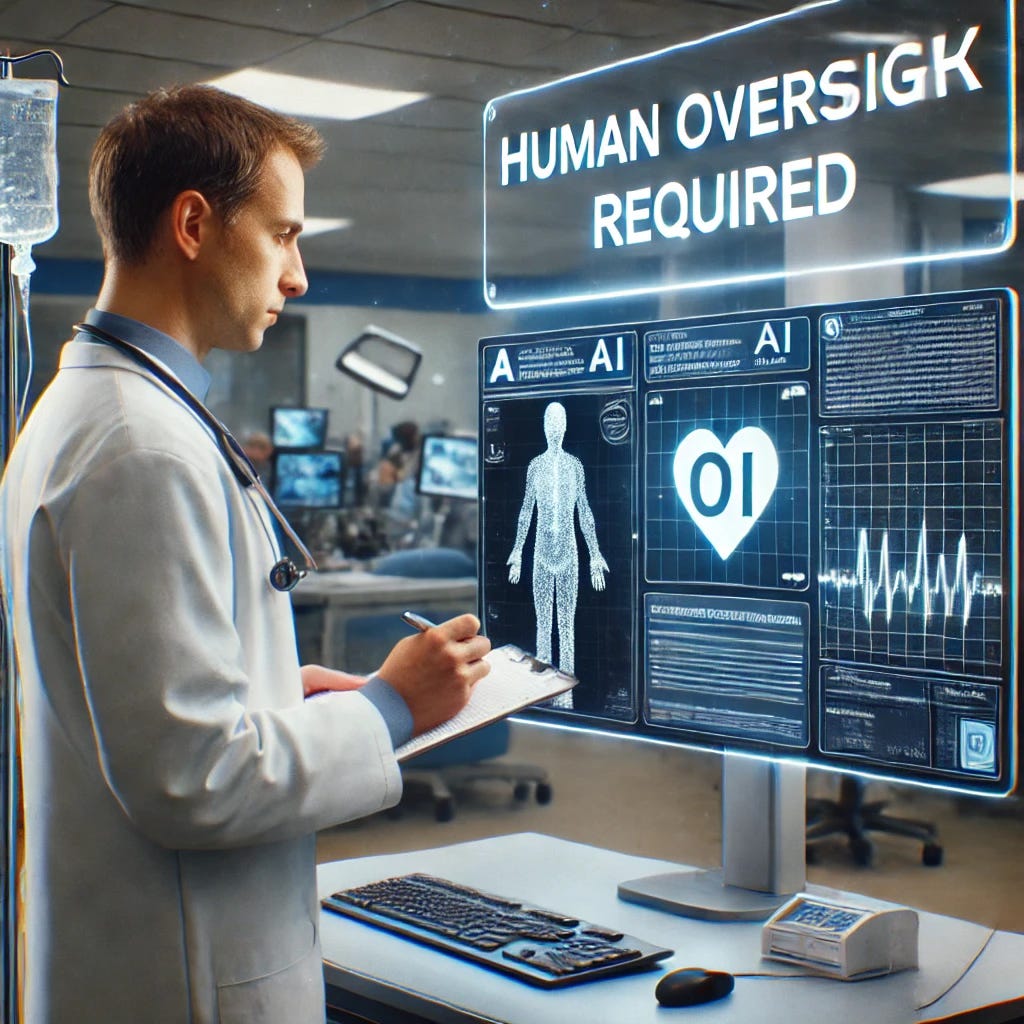Too Many Tools, Too Many Risks: Navigating the AI Puzzle In Your Organization
Navigating the AI Puzzle In Your Organization
As we delve further into the potential and role of AI tools within healthcare, we must acknowledge the plethora of tools currently flooding the market. While these tools offer simplicity and accessibility, their sheer number can be overwhelming and potentially hazardous. The surge in AI tools, though beneficial in many respects, also paves the way for misuse. Within a year, we will likely witness concrete examples of how AI has been misapplied, exacerbating existing disparities or even creating new ones.
This image is AI-generated from ChatGPT and does not represent real people or real situations. Any depictions of real people are entirely coincidental.
Too Many Tools, Too Many Risks
The abundance of AI tools presents a double-edged sword. On one hand, the accessibility and ease of use democratize technological advancements, enabling even those with minimal technical expertise to leverage AI in their practice. On the other hand, this very ease of use raises the risk of misuse. Without proper understanding and application, AI tools can inadvertently reinforce biases and deepen inequities within the healthcare system. For instance, an AI tool designed to streamline patient data might inadvertently overlook critical nuances in patient backgrounds, leading to skewed outcomes and potentially harmful decisions. For the statisticians who follow this newsletter, garbage in, garbage out is truly real for AI tools.
The Necessity of Human Oversight
Human intervention remains crucial in the AI landscape. It is imperative for healthcare professionals to actively engage in surveying and exploring the myriad of AI tools available. This engagement should not merely be superficial but should aim to understand the underlying algorithms and data sets that drive these tools. By doing so, healthcare systems can build robust frameworks that leverage AI's capabilities while mitigating risks.
One viable approach is the establishment of dedicated teams within hospital systems tasked with continuously evaluating AI tools. These teams would assess the tools' effectiveness, identify any biases, and ensure they align with the hospital's quality improvement and patient experience goals. Such a proactive stance ensures that AI tools are not only effective but also equitable and ethical.
This image is AI-generated from ChatGPT and does not represent real people or real situations. Any depictions of real people are entirely coincidental.
Systems and Processes for Patient Experience Data
A critical area where AI can make a significant impact is in mining patient experience data. However, this requires well-defined systems and processes to ensure the data's integrity and usefulness. I am currently collaborating with several hospital systems to develop such frameworks. These systems aim to harness the power of AI to analyze patient feedback comprehensively, identify patterns, and drive meaningful improvements in care delivery.
For instance, AI can sift through vast amounts of patient feedback to identify recurring issues or highlight areas where patients feel underserved. This information can then inform targeted interventions, ensuring that patient voices are not only heard but acted upon. By systematically integrating AI into the patient experience data mining process, hospitals can achieve a more nuanced and actionable understanding of patient needs and preferences. I am trying to help the hospitals I am working with become that ‘good example’ of responsible, meaningful and effective AI integration.
This image is AI-generated from ChatGPT and does not represent real people or real situations. Any depictions of real people are entirely coincidental.
However, as we navigate the complexities of AI integration in healthcare, it is essential to strike a balance between innovation and caution. The promise of AI lies in its potential to transform how we define and deliver healthcare, but this promise can only be realized through responsible use and continuous oversight (in my opinion). Healthcare professionals must remain vigilant, ensuring AI tools are employed ethically and effectively.
For those interested in further exploring how to leverage AI for quality improvement and patient experience, I am available for consultation. Please feel free to reach out to me at info@methodologists.org.
Healthcare Humanized™: www.youtube.com/@healthcarehumanized
The Academy of Research Methods™: https://learn.methodologists.org
LinkedIn: https://ca.linkedin.com/company/the-methodologists
The Methodologists (TMT)™. mobilizes organizations to design people-centred services through rigorous research and meaningful engagement.
Learn more about us and our services by visiting our website. You can also explore our YouTube channel, Healthcare Humanized™, or connect with us on LinkedIn. For support and services, reach out to us via email at info@methodologists.org.
We are building something exciting. Become a Research Champion by clicking here, and you gain access to all our courses (current and future), reports, consultations, and so much more.






